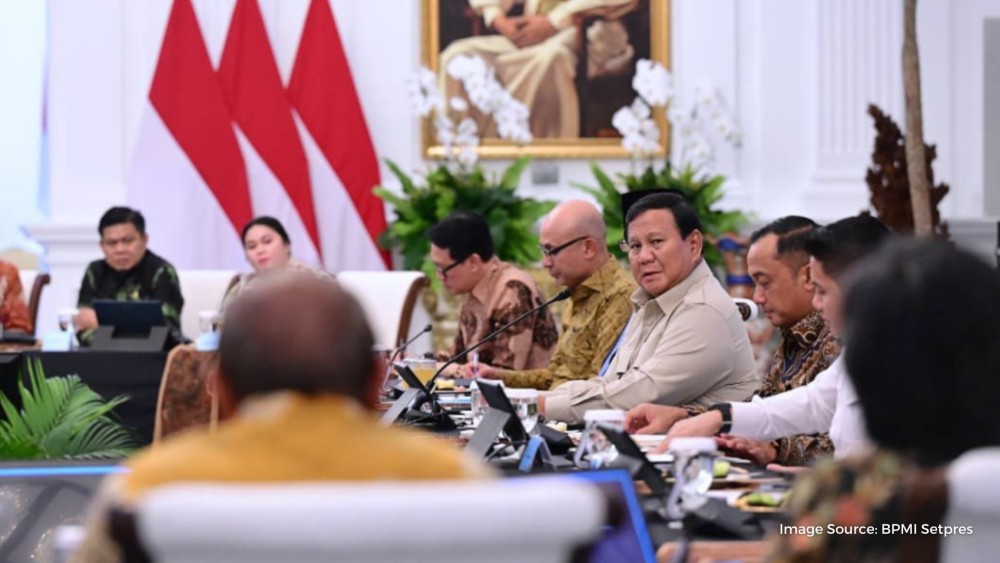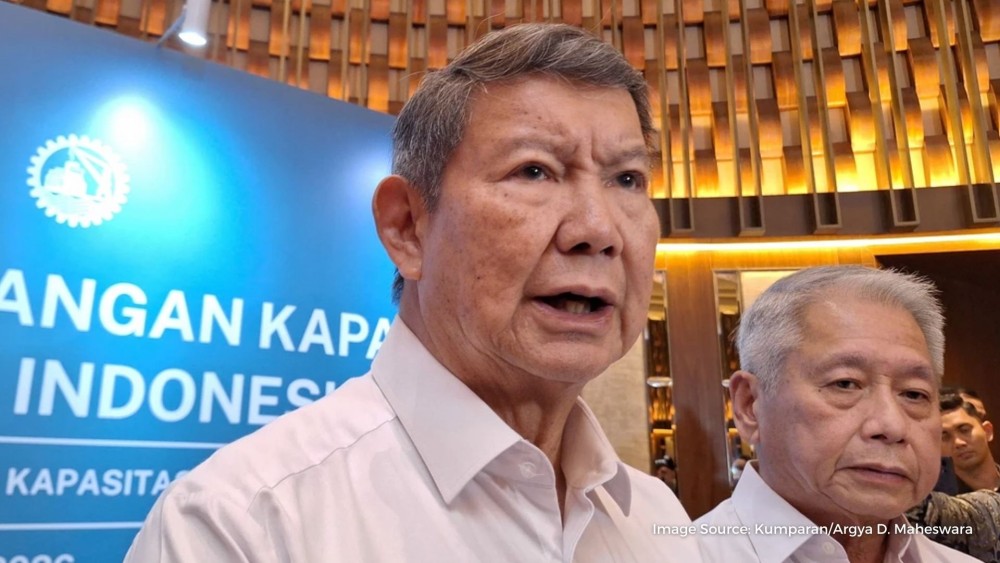This Week's Headlines (Oct 14 - 20, 2023)
20 Oct 2023

Indonesia raises key interest rate to 6% in surprise move
Indonesia's central bank defied expectations on Thursday by raising its benchmark interest rate by 25 basis points to 6% after keeping it unchanged for eight consecutive meetings.
Economists in a recent Reuters poll had forecast the central bank would keep its seven-day reverse repo rate unchanged at 5.75%.
"This increase is to strengthen the policy to stabilize rupiah ... against impacts from increasing global uncertainties, and as a preemptive and forward-looking measure to mitigate impacts of [rupiah depreciation] on imported inflation," Bank Indonesia Gov. Perry Warjiyo said.
He added the central bank is aiming to keep inflation in a range from 2% to 4% this year and from 1.5% to 3.5% in 2024.
Against the strengthening dollar, the rupiah has performed relatively well compared with its regional peers, losing around 1% year to date. This is thanks to Indonesia's strong trade performance, buoyed by the high prices of its main commodity exports such as coal, palm oil and nickel. The prices of these commodities have fallen from their record highs last year, but remain elevated.
However, the rupiah is continuing to weaken, breaching 15,800 per dollar on Thursday, its lowest level since April 2020. This is sparking concerns among Indonesia's food, pharmaceutical, automotive and other industries that rely on imported raw materials.
Worries are also growing that the currency's depreciation could force the government to increase the prices of subsidized vehicle fuels, given that Indonesia imports half of the fuel it needs. Fuel prices are a touchy subject in Southeast Asia's largest economy. Price increases in the past have led to violent protests.
These are in addition to Indonesia's need to import more rice amid lower harvests due to the El Nino weather phenomenon causing dry spells in Southeast Asia.
Warjiyo said Bank Indonesia will intervene in the currency market to help stabilize the rupiah.
Bank Indonesia holds monetary policy meetings every month. It raised the key rate by 2.25 percentage points between August 2022 and this past January, then paused its tightening in February.
Source: Nikkei Asia
Indonesia's third-quarter FDI up 16% y/y on commodity processing investment
Indonesia booked 196.2 trillion rupiah (US$12.4 billion) worth of foreign direct investment in the third quarter, up 16.2% from a year earlier, according to data on Friday from its investment ministry, which kept records in rupiah terms.
Using the ministry’s official conversion, the third-quarter FDI was equivalent to $13.3 billon. The data excludes investments in banking and the oil and gas sectors.
Southeast Asia’s largest economy has seen a jump in FDI in recent years as it attracts investment in the mineral processing industry, though authorities have cautioned that elections in February may put a pause on companies’ investment decisions.
The ministry’s data showed an acceleration in the third quarter FDI growth. FDI rose 14.2% on a yearly basis in the second quarter.
“Despite entering a political year, global (investors) have placed great confidence in us,” Investment Minister Bahlil Lahadalia said in a news conference.
He said the outlook for the remainder of the year was clouded by rising geopolitical tensions, including the conflict in the Middle East.
Including from domestic sources, the ministry recorded a total of 374.4 trillion rupiah worth of direct investment in the July-September quarter, up 21.6% year-on-year.
Some 30% of the total investment went into industries that process Indonesia’s natural resources, the ministry said.
These include progress on a petrochemical plant South Korea’s Lotte Chemical Corp is building in the town of Cilegon on the northwestern shores of Java island, and Freeport Indonesia’s copper smelter in Gresik, East Java.
The biggest recipient of FDI was the base metals industry, which received $3.3 billion of investment, followed by chemical and pharmaceutical industry and mining.
Singapore, China and Hong Kong were the biggest sources of FDI.
($1=15,845.0000 rupiah)
Source: Reuters
President Jokowi meets with Chairman of China's NPCSC in Beijing
President Joko Widodo (Jokowi), on Wednesday, met with Zhao Leji, Chairman of China's Standing Committee of the National People's Congress (NPCSC), in Beijing to discuss the comprehensive strategic partnership between Indonesia and China.
"The comprehensive strategic partnership between Indonesia and China has been fostered for 10 years. We should continue to maintain it in the hopes of strengthening our ties," President Jokowi remarked at the Great Hall of the People, Beijing.
The president met with Zhao after attending the opening ceremony of The Third Belt and Road Forum (BRF) for International Cooperation at the same venue.
"And I appreciate the well-fostered cooperation between the parliaments of both countries," he stated.
President Jokowi noted that the governments of Indonesia and China had agreed to further solidify cooperation in various fields.
"We need support from the parliaments in this context," he remarked.
Meanwhile, Chairman Zhao, on his part, highlighted that Indonesia had become one of the most important partners of China within the cooperation framework of the "Belt and Road Initiative."
"President Xi Jinping unveiled the Belt and Road Initiative 10 years ago," he remarked, adding that under the strategic leadership of President Xi and President Jokowi, both countries have been eager to sustain the initiative.
He further noted that mutually beneficial cooperation had resulted in expected progress that positively affected regional economic cooperation.
After attending the meeting that lasted 15 minutes, the Indonesian head of state and his entourage proceeded to join a lunch session.
During the meeting, President Jokowi was accompanied by ad-interim Maritime Affairs and Investment Coordinating Minister Erick Thohir, Minister of Trade Zulkifli Hasan, Cabinet Secretary Pramono Anung, and Indonesian Ambassador to China Djauhari Oratmangun.
Earlier, on Tuesday (October 17), President Jokowi also met with Chinese Prime Minister Li Qiang in Beijing.
The Belt and Road Initiative (BRI), or One Belt One Road (OBOR), is a program introduced by the President of China Xi Jinping in 2013.
President Xi devised the program to bring back the glory of the Silk Road to the 21st century. To that end, the president has been directing his country to invest and build infrastructure on a massive scale in as many as 152 countries in Europe, Asia, the Middle East, South America, and Africa.
The word "Belt" in BRI is the short for the "Silk Road Economic Belt" that refers to the vision of connecting China to countries in Central Asia, South Asia, and Europe with road and rail routes.
Meanwhile, the word "Road" is derived from the "21st Century Maritime Silk Road" that refers to China's aspiration to establish sea paths connecting it to Southeast Asia, the Middle East, East Africa, West Africa, and Europe.
Indonesia has received funding from China under the BRI to work on several projects, such as energy projects, water management, agriculture, and rail-based means of mass transport, namely the Light Rail Transit (LRT) trains and the Jakarta-Bandung High-speed Trains (KCJB).
The KCJB, which was inaugurated by President Jokowi in early October this year, can transport people from Jakarta to Bandung in just 36-44 minutes since the trains reach a top speed of 350 kilometers per hour.
In addition to Indonesia, 146 countries have signed a deal with China under the BRI program that has resulted in various transportation infrastructure, including the China-Laos Railway, China-Europe Railway Express, and Mombasa-Nairobi Standard Gauge Railway in Kenya.
Source: Antara News






